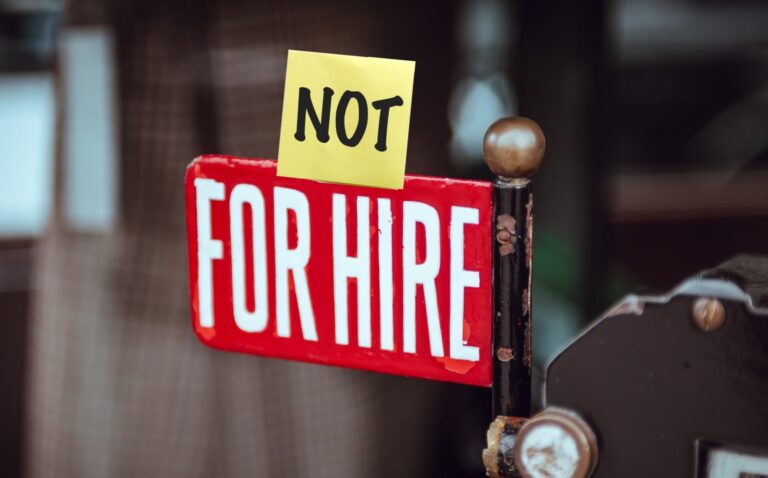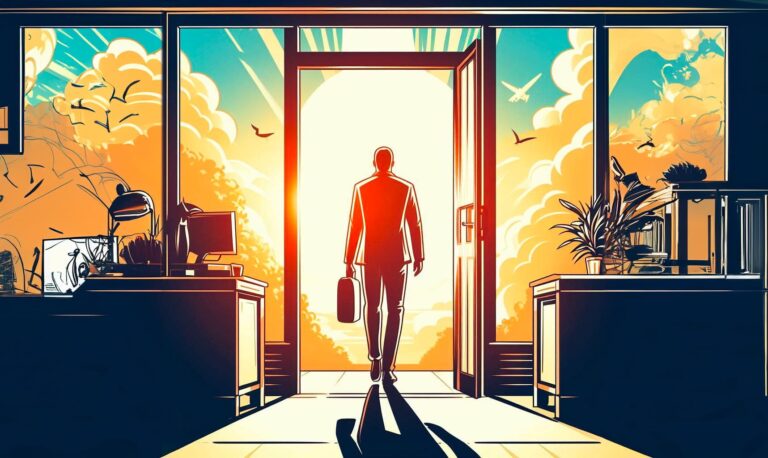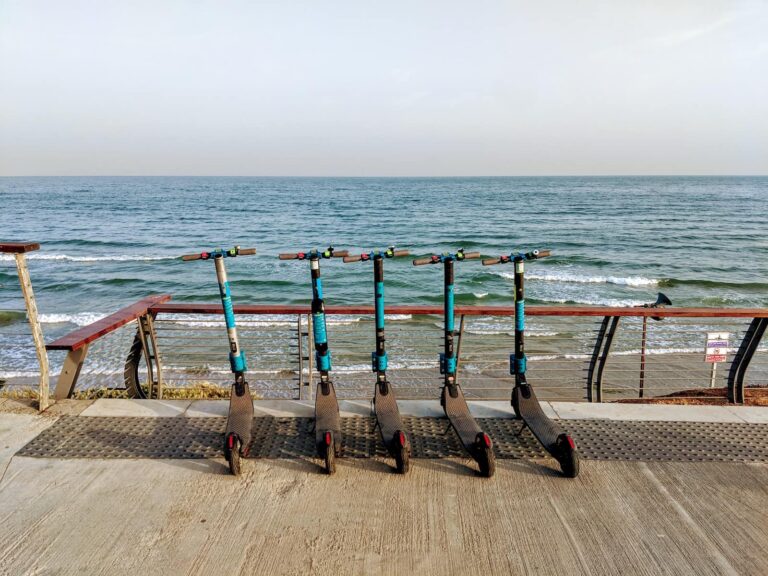Five Lies Society Told Me about Things I Have to Do
There are certain widely-held beliefs about things that one should or must do in our lives that just aren’t true. They come from a mixture of society, our parents, our friends, and even sometimes, religion.
To be dramatic, these beliefs are not just untrue; they’re lies, whether consciously so or not.
These “rules” for life are hard to break because everyone seems to follow them. Not doing these things makes you an outcast. Well, it’s fun being an outcast. You get to figure out what you really want and be your own person.
I constantly find examples of people who are successful and happy who haven’t played by these rules — some of them, or all of them.
This isn’t a definitive list. I’m curious what else there might be. Let me know if you have any to add.
A general caveat is that you don’t have to follow any of these general rules. But you certainly can — if you want. It’s just that figuring out what we want is difficult amidst all the noise.
Preamble — The “Safety Net” Mentality
Because my own family regularly reads my blog and I don’t want to throw them under the bus, let me give a preamble to explain that I generally do understand where this mentality of following conventional paths comes from.
There is safety in numbers. If everyone seems to be doing something, and it’s generally working for a lot of people, then it does seems safe to recommend it.
For example, I really like being a writer and entrepreneur. But I wouldn’t recommend it to most people. It’s unstable, stressful, and much more difficult than it looks. Instead, it’s safer to recommend a general path of learning a valuable skill and selling your services in the labour market.
But still, the decisions I’ve made in my own life work for me — for now. It has taken quite a bit of convincing to myself that they’re the right decisions. And because I want to encourage everyone else to investigate what really would work best for them, I want to share some of what I’ve learned below.
You Don’t Need to Go to University to Get an Education
Higher education has been excessively normalised. In Europe, it’s the de-facto pathway if you want a job (more on whether you need to have a “job” later), with doctorates becoming normalised for higher positions. In Australia, you almost have to get a double degree, or risk seeming too specialised. In the US, professional advancement usually requires an expensive masters degree. All of this costs us not just money, but our most precious, non-replaceable resource — time.
For most of my childhood, my parents wanted me to be a doctor. I thought I rebelled against that by going to university and getting two other vocational degrees in other things — engineering and law.
You’re probably laughing for the same reason I am — this wasn’t a rebellion at all! True rebellion would have been to study only what I really wanted to study (language and linguistics), or to eschew formal education altogether in pursuit of some alternative way of becoming educated.
I’m not anti-education, of course. I just think it should be optional for our existence, career, and income-producing potential, and free. We’re quite a well way off both — and the US, with its high price of college education, has especially far to go.
But after spending far too long at university and never having worked in professions related to my studies, it seems to me that there are definitely better ways of preparing oneself for life. These could be things like
- Apprenticeships or other on-the-job learning, where someone experienced teaches you how to do it
- Vocational schools that teach you a specific trade
- Self-education through life experience (nothing teaches you how to run a business better than running a business!)
Many people already follow those paths. In fact, I followed each of those paths despite also spending six years at uni. While I don’t regret my university time per se in that it brought me to where I am, if I knew what I do now, I wouldn’t have done it.
At least I chose to study Chinese rather than get an MBA (here are some other things I’d suggest rather than getting an MBA).
You Don’t Have to Have a Job or Career
Beyond education, there’s an expectation among people from many backgrounds that success means having a job, a car, and a house (I’ll get to the latter two soon).
I’ve written separately about how you don’t have to get a job. But in a nutshell — there’s an illusion of a steady job or predictable career path that universities and recruiters sell, but which doesn’t exist.
Nothing lasts forever. In fact, sometimes things don’t last long at all! You can be fired at any point. Companies come and go, as do departments, projects, and positions. Economies tank. Industries vanish. There’s nothing you can rely on for a period of more than around six months. In fact, many (non-entry-level) roles change in nature roughly during that period.
So the things we’re told to pursue — jobs and careers — don’t exist. Instead, I suggest people see life as a series of contracts. I’ll do this for this person, then do this for someone else, and then mostly, I’ll do what I can for myself.
If you really do start to see life as a series of contracts, it broadens your horizons as to ways in which you can put money in your bank account. You can do things like
- Ad hoc investments, like buying and renovating homes
- Starting and selling small businesses, like cafes and gyms
- Labour-type projects, like building or construction
- Trade, like becoming a motorcycle or house sales person
- Art, like becoming a sculptor or painter and selling works
I know people who do each of the above. So those are possible. There are many more, too. You don’t have to spend your life in an office fiddling with spreadsheets and answering emails — unless you want to…
You Don’t Need a Car or To Commute

Many people who attend school or jobs spend a lot of time figuring out how to optimise their commute. I know I did. For me, this involved things like:
- Choosing the optimum vehicle (car, motorcycle, bicycle, public transport)
- Leaving at the right time
- Using money efficiently on passes, fuel, or whatever
Driving to school or work was the type of commuting that I hated the most. Driving demands your attention — not paying attention can lead to expensive or even deadly mistakes. On top of that, driving is expensive — cars are expensive, as are gas, maintenance, insurance, traffic fines, parking, and maybe other expenses. It’s particularly egregious when you have to drive because a city hasn’t invested in public transport, as is the case in most of Australia (where I think driving is a scam).
People try to optimise their drive in all kinds of ways. They maybe put on an audiobook while driving. They might leave early to beat the rush. Or they might zip in and out of traffic trying to shave seconds off a long commute.
But the people really winning are those who don’t drive at all. If you telecommute, live close enough to work to cycle or walk (or are lucky enough to be in a city with excellent public transport — common in Europe, less so elsewhere), or work from home, then you have saved yourself a lot of time, money, and stress.
These days, as I work from all over the world — whether from my living room in an Airbnb somewhere or in a cafe sometimes — I always reflect on how lucky I am to not have to drive. Right now, I’m sitting in a park, on a bench, writing this article on my phone, as people around me commute to work. It’s pretty special.
You Don’t Have to Get Married and Have Kids
I grew up in an environment where it was assumed I’d get married and assumed I’d have kids. Many of us grow up in the same. I firmly believed I would for most of my life.
The pressure to get married is strong. A lot of it comes from the US, which has a more conservative value set than Europe or Australia/NZ, and where people have the same rights from living together that most Americans only have through marriage.
On top of that, social pressure for marriage gets normalised through TV and films. Many TV series feature weddings and babies between the main characters when those are not central tenets of the comedy at all.
But you don’t have to get married. In most civilised countries (not most states of the US, other than those that recognise common law marriage), you have the same legal rights as a spouse whether you’re married or not — the certificate doesn’t change anything.
Then there’s kids. I’m not sure exactly why so many people have kids despite the obvious fact that it’s very, very hard. Yes, they’re cute at times, and it can be rewarding. For some people, it’s the best part of their loves. But many parents get steamrolled into the decision of having kids without really considering whether it’s for them. There are many parents who regret kids and feel like outcasts for thinking so.
Having kids is a huge decision. You’re bringing new lives into the world. Consider it carefully. Here is a set of difficult questions to consider before children — it might help you.
You Don’t Need to Buy a House and Have a Mortgage
Finally, the final nail in the coffin: You don’t have to buy a house and have a fat mortgage.
I remember reading in Rich Dad, Poor Dad by Guy Kawasaki that “Rich Dad” owns his own house. Fine. It’s good to have assets. But you don’t have to be rich dad. You can be you. You can rent, and own other things that pay your rent.
There’s a caveat to this: Because most people think it’s good to own a house, most people try to do it early, and urgently. This is causing housing prices in urban centres (where people can afford houses) to skyrocket. And because prices are skyrocketing, it’s still good advice to buy a house!
But the catch is that because in most parts of the world you have to borrow the best part of a million dollars — or more — just to own a house, buying a house immediately tethers you to a mortgage and loan repayments. This means you’re tethered to your job, stress, and living in a city. You can’t just buy in to one; you have to buy into everything.
I chose not to buy a house early. I bought stocks. My investments spared past any house I’d have been able to afford. I may have gotten lucky, but it’s possible to engineer your own luck, too.
So, choose wisely. You can not buy a house and go live somewhere wonderful where housing is cheap if you earn non-local currency, like Argentina, Turkey, or Bali. In those places, $100,000 goes a very long way.
Summary: You Don’t Have to Follow the “Rules”
The summary of this whole article is that you don’t have to follow conventional advice about what to do with your life. It’s not to say it’s wrong (often, it’s well-founded). But when you feel pressured into doing something despite a nagging feeling that it might not be right, then it’s worth investigating further.
If you have any other things to add to the list, I’d be curious to know what they are!







